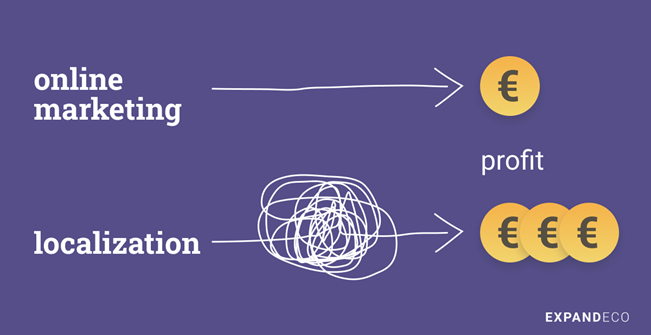More than 2000 online shops from the Czech Republic and Slovakia have already expanded abroad. Indeed, expansion has become both a sign of effectiveness and competitiveness. But when you are just leafing through an e-commerce magazine or attending an e-commerce conference, you may get the feeling that if you are not going to enter at least five new markets at once, you do not understand the meaning of the word “e-commerce”. Such discouragement may cause your business to stagnate. Successful e-commerce stories are certainly a source of motivation and new ideas, but going your own way is of even greater importance.
How do I know that now is the right time to expand?
According to Tomáš Vrtík, the main indicator of the right time for expansion abroad is the perception of the average growth rates of your competitors.


“If the barefoot footwear market is growing by 40% a year and my online shop only by 15%, then I should start to think about what I am doing wrong. In other words, this indicates that my competitors are expanding abroad or that I am missing an upward trend,” says Vrtík.
Stability and healthy cash flow are essential. “I can tell that readiness to expand abroad is the only logical step after building a strong position in the domestic market. A good example is that of a Czech online shop that is well-established in the domestic market and that already has some customers in Slovakia. The only logical step for such a business is to properly expand into Slovakia. Another example is an online shop selling a unique product that is in high demand throughout Europe – but particularly in Germany – on a website that is in English. This is a good sign that the online shop should localise its business and create a local customer service team,” says Vrtík.
For Czech and Slovak online shops, expansion into Slovakia or the Czech Republic is an essential step. “The expansion of a Slovak online shop into the Czech Republic and a Czech one into Slovakia is a unique opportunity that provides you with all you need to know about expansion,” says Filip Minár.
When not to expand
“Expansion is not an escape hatch from problems on the domestic market,” says Vrtík. In his view, having a strong position in the local market is necessary for successful expansion abroad.
The selection of the right market: how do I know where it makes sense to expand?
You must seek a country where you can take advantage of every opportunity. Is your website more frequently visited in Hungary than in Poland? And have you already been receiving orders from Hungary? Take this as a good sign that you should start thinking about expanding into Hungary. It is good to start by looking at the data output from Google and Heureka (or other price comparison websites) and to analyse your competitors alongside your own product portfolio. “By looking at the figures alone, it may seem that the US and German markets are the most appropriate ones for expansion,” says Vrtík. “However, an interesting fact is that those owners of online shops that have relatives or friends living in another market – who they frequently visit – are more likely to expand into that market,” he adds.
In practice, it looks like this: the business figures show the most appropriate destination for expansion of your online shop is Romania. But when you speak Croatian and are familiar with Croatia, the most appropriate country for expansion is Croatia. Another example of deciding where to expand is when you are based close to a national border where it is quite easy to find bilingual or trilingual employees – like near Poland, for instance.










